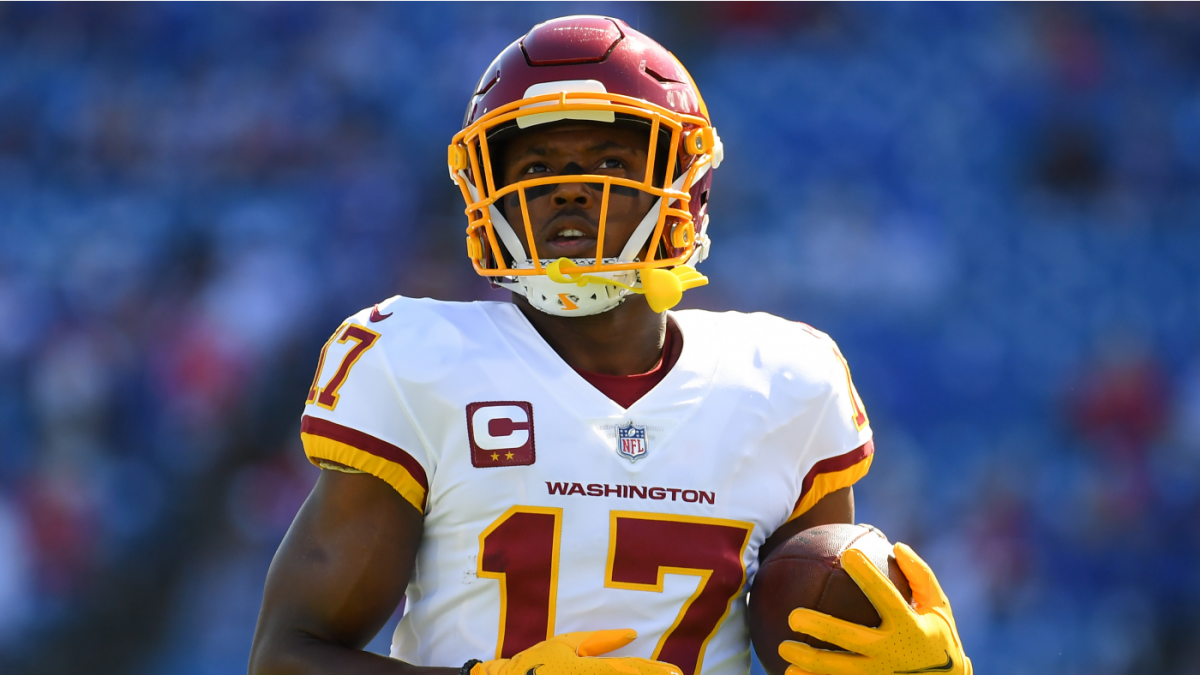Navigating the Terry McLaurin Minicamp Holdout: A Modern NFL Power Play
In the high-stakes world of professional football, few stories capture the shifting dynamics of player power and team strategy quite like Terry McLaurin’s current holdout from the Washington Commanders’ mandatory minicamp. This episode is more than just a contract dispute; it’s a prism through which we can examine evolving trends in player empowerment, financial negotiations, and the broader NFL landscape.
The Holdout in Context: McLaurin’s Rising Value Meets Contract Frustration
Terry McLaurin is not just any receiver; he’s a franchise cornerstone with a dazzling track record. Over six seasons, McLaurin amassed over 6,300 receiving yards, including a franchise record 13 touchdowns last season, which helped propel the Commanders to the NFC Championship. Despite these achievements, he approaches the final year of his rookie contract, initially negotiated by a previous management team, and is now seeking compensation that reflects his elite status.
His absence from minicamp is a calculated message. It’s both a protest and a negotiation tactic signaling impatience with stalled talks and a demand for alignment between his contributions and pay. While this move risks fines north of $100,000 and potential rifts in team chemistry, it underscores a profound shift: top players leveraging their indispensability to shape their futures actively.
Financial and Contract Dynamics: Numbers Tell a Story Beyond the Field
The financial stakes of McLaurin’s holdout illuminate a larger NFL trend where star wide receivers command salaries paralleling their on-field impact. Players from McLaurin’s draft cohort, such as AJ Brown and DK Metcalf, have secured landmark deals that set a benchmark. Washington’s hesitation to meet these terms reflects salary cap constraints and risk management.
However, McLaurin pushing back disrupts this delicate balance, hinting at a broader negotiation evolution. The fine levied during a holdout is costly but often dwarfed by the long-term gains of securing a contract extension commensurate with a player’s market worth. This negotiation dance is as much about timing and leverage as the cold arithmetic of contracts.
Trade Buzz: Potential Destinations and What They Signify
When contract talks hit an impasse, trades become a compelling alternative. McLaurin’s name has surfaced in trade conversations involving franchises like the Los Angeles Chargers, Pittsburgh Steelers, and Las Vegas Raiders. Each presents a distinct narrative:
– Los Angeles Chargers: A blockbuster trade involving McLaurin and running back Austin Ekeler, for instance, reflects a radical recalibration of rosters in pursuit of offensive firepower.
– Pittsburgh Steelers: Targeting McLaurin signals a bet on reinvention, turning to proven talent to revamp an offense in transition.
– Las Vegas Raiders: Their aggressive roster strategy thrives on acquiring dynamic playmakers who can elevate competitive standing rapidly.
These rumored moves emphasize McLaurin’s value being more than just yards and touchdowns; it’s about the game-changing presence he brings to any offense and how strategic acquisitions can pivot team trajectories overnight.
Commanders at a Crossroads: Balancing Talent, Loyalty, and Salary Cap Strategy
The Washington Commanders find themselves at a strategic inflection point. Committing upwards of $100 million to McLaurin would commit a significant portion of their salary cap, shaping future roster construction and potentially limiting flexibility in other areas. Conversely, dealing away their top receiver risks dismantling their offensive identity and disappointing a fanbase craving sustained success.
This dilemma highlights the tension between loyalty to a franchise icon and pragmatic business weighs intrinsic to professional sports today. How the Commanders navigate this will reverberate through their short-term competitiveness and long-term planning.
Broader NFL Implications: Redefining Player Power and Contract Culture
McLaurin’s situation is emblematic of an NFL increasingly characterized by player empowerment. The era where players passively accepted initial contracts is fading, replaced by athletes who proactively use negotiation tactics — including holdouts and leveraging trade possibilities — to redefine their careers.
This growing assertiveness reshapes how teams approach contract negotiations, talent retention, and build overall franchise strategy. It also injects volatility and excitement into the league, where dynamic player movement can swiftly alter the competitive balance. Fans witness not only performances on Sundays but also high-stakes corporate maneuvering behind the scenes.
Looking Forward: Resolving the Standstill and What Comes Next
As training camp approaches, the football world watches with anticipation. Will Washington accede to McLaurin’s terms and solidify their offensive leader’s future? Or will a blockbuster trade shake the league, redistributing talent and rewriting team narratives? The outcome will set precedents not just for McLaurin and the Commanders, but for contract culture and player negotiation power across the NFL.
Closing Reflections: A Defining Chapter in NFL Evolution
Terry McLaurin’s holdout transcends a simple contract dispute; it illustrates the evolving power dynamics shaping professional football. His strategic absence from minicamp signals a bold assertion of self-worth at the prime of his career, challenging traditional team-player relations.
For the Commanders, it is a pivotal moment that balances allegiance with fiscal and strategic reality. For the league, it highlights a transition toward a player-driven marketplace where individual careers are managed with acumen equal to athletic prowess. The story is ongoing, but McLaurin’s choices will undoubtedly leave a lasting imprint on how NFL contracts and player-team relationships evolve in years to come.

